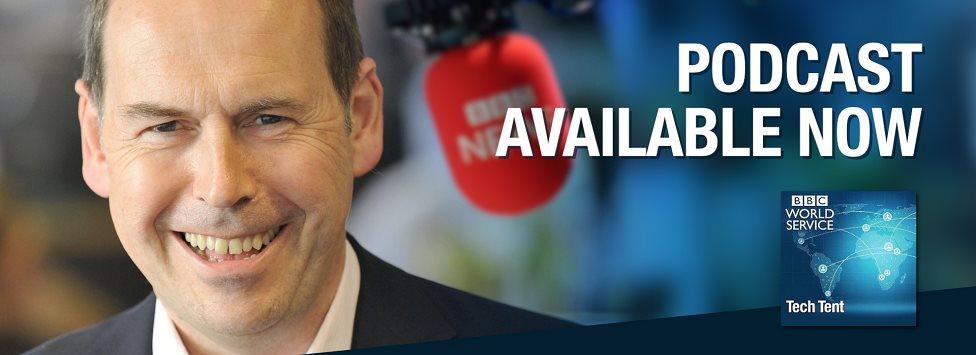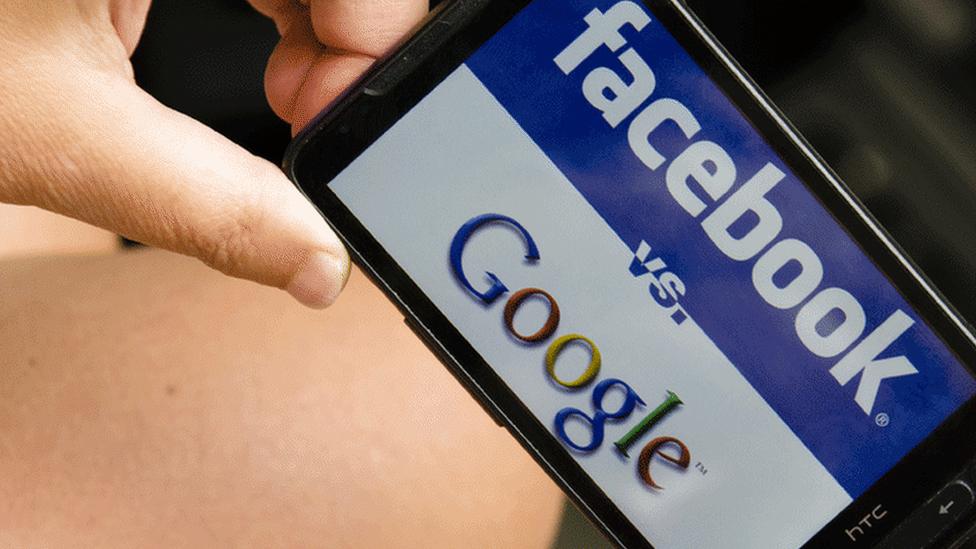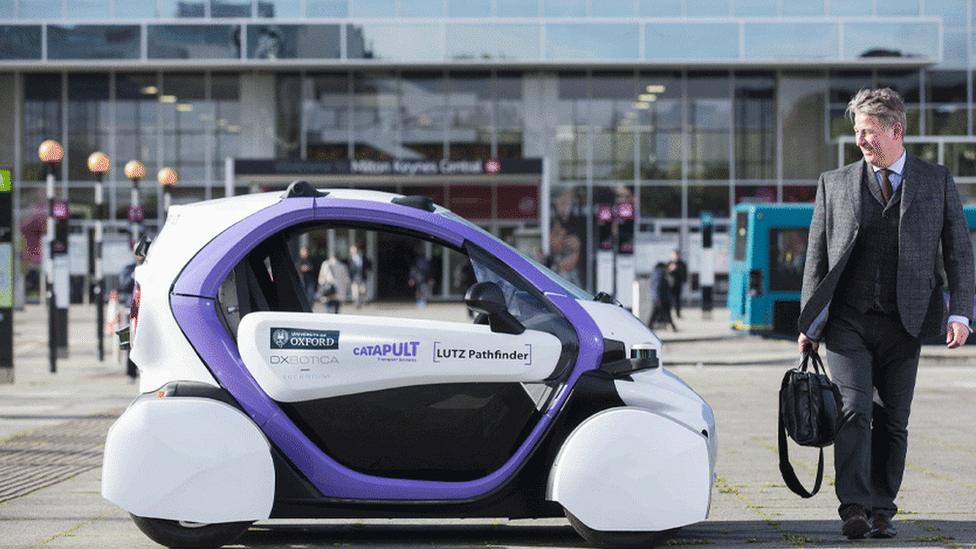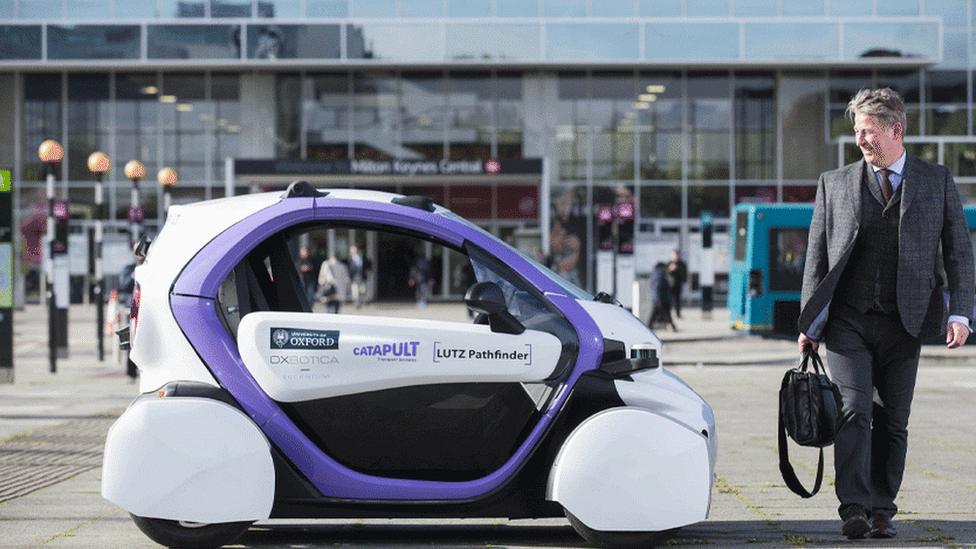Tech Tent: Fake ads, fake news and real voice tech
- Published

Stream the latest Tech Tent episode on the BBC website
Download, external the latest episode as a podcast
Listen to previous episodes on the BBC website
Listen live every Friday at 15.00 GMT on the BBC World Service

Fake advertising

The advertising industry thinks Facebook and Google could do more to combat ad fraud
The tidal wave of fake news spreading across the web has brought mounting pressure on Google and Facebook to face up to their responsibilities as platforms for false information. But now the two web giants are under pressure over another kind of fakery - fake advertising.
On this week's Tech Tent we hear about the advertising industry's mounting anger over a problem that is damaging its credibility with its clients. When advertising began to move online, there was the promise of much better targeting and much more accurate measurement of how well a marketing message performed.
Instead all sorts of issues, from bots that generate phony views of ads to the placing of advertisements next to unsuitable content, have shaken confidence in the industry.
A media industry conference in London this week heard a prediction that out of $80bn (£65bn) of digital ad spending in 2017, over $16bn would be eaten up by fraud.
Johnny Hornby, founder of a media agency called The&Partnership, tells Tech Tent that the time has come for a radical response.
He says a tool called pre-bid verification, which checks sites to make sure they are not fraudulent and allows agencies to make sure they are not placing ads where they will generate phony clicks, has been shown to wipe out most fraud.
But he says both Google and Facebook have refused to let this software on their platforms. Hornby is calling for the industry to unite and threaten a boycott if the two web giants, which account for two-thirds of online advertising, don't shape up.
Google told us it did not allow third-party software on to its services but argued that it was a leader in combating ad fraud: "Last year, we took down almost seven million bad ads for intentionally attempting to trick our detection systems," a spokesman said.
Of course, its online advertising and the revenue it can produce is also driving the creation of fake news sites. But the digital media commentator Prof Jeff Jarvis tells us that journalists must share the blame with the likes of Google and Facebook for this phenomenon.
Indeed he thinks the old media, which treated its audience as one giant indistinguishable mass, can learn from the web giants how to relate to people on an individual level. But he does believe the platforms have a duty to show their users more about the sources of information and to try to understand how they are being manipulated.
Driverless cars

The pods will eventually be able to be hailed by members of the public
Two other big tech trends on this week's programme - driverless cars and speech recognition.
Prof Paul Newman is the founder of Oxbotica, which is creating operating systems for autonomous vehicles. He talks to us about the contrast between the rapid advance in the technology behind driverless cars and the slow progress of the infrastructure - physical, social, and legal - which will be needed to support them.
And then we talk about how quickly we've moved in getting machines to understand the human voice, with Dan Faulkner of Nuance, a company that has been a pioneer in speech recognition. He tells us that now machines can understand what we say and respond to our instructions, it's time to move to the next stage - "enabling machines to actually drive a conversation and take it in a direction which makes sense to them".
In other words, one day soon your smartphone could start asking you questions or perhaps giving you instructions. Are you ready for Siri or Alexa to tell you to empty the dishwasher and put the dinner on? I'm not sure I am…
- Published11 October 2016
